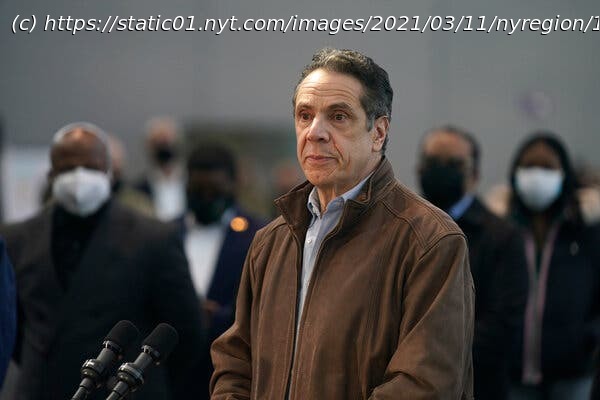The move by the State Assembly sets the stage for what could be the state’s first impeachment effort in more than a century.
New York State lawmakers on Thursday opened an impeachment inquiry into Gov. Andrew M. Cuomo, the surest sign yet that the governor was seeing his party turn against him amid growing scrutiny of a recent series of sexual harassment accusations. After a three-hour emergency meeting, the State Assembly announced that it would give its judiciary committee broad jurisdiction to investigate allegations of misconduct against Mr. Cuomo, including the sexual harassment claims and his administration’s handling of virus-related deaths of nursing home patients. The decision set the stage for what could be the state’s first impeachment effort in more than a century. “The reports of accusations concerning the governor are serious,” the Assembly speaker, Carl E. Heastie, a Democrat, said in a statement, adding that the “impeachment investigation” will encompass interviewing witnesses, subpoenaing documents and evaluating evidence. The announcement came on the same day that 59 Democrats in the State Legislature — about 40 percent of the party’s members in the Assembly and the Senate — signed on to a statement demanding that Mr. Cuomo immediately resign in the wake of allegations from women, including current and former aides, who have accused him of harassment or inappropriate behavior. Hours later, the Albany police had confirmed that they had been notified of one such accusation by the New York State Police, an incident at the Executive Mansion that was characterized as something that might have risen “to the level of a crime.” The move followed the publication of an article in the Times Union of Albany on Wednesday that detailed claims leveled by an unidentified aide to the governor, who accused Mr. Cuomo of groping her at the governor’s mansion, where he lives, late last year. The rapid-fire developments underscored how Mr. Cuomo’s once ironclad grip on Albany was fast weakening and left veteran lawmakers wondering aloud how he could continue to effectively govern. “I think it’s hard to be having serious conversations about moving the state in a progressive direction,” said Liz Kreuger, a Democratic state senator from Manhattan, “when you don’t know when the next shoe is going to drop.” Mr. Heastie has signaled that he would not move forward with impeachment without a majority of his own Democratic conference, a common practice for almost all legislation in the 150-seat Assembly, where Democrats outnumber Republicans by more than two-to-one. The convening of a special judicial committee could signal a shift in Mr. Heastie’s thinking, but it could also give him more time to decide whether to proceed with impeachment. It also may give the governor some breathing room in a scandal that has overwhelmed his administration in recent weeks. Mr. Cuomo, a third-term Democrat, has apologized for workplace remarks that he said may have hurt or offended women but has also denied ever touching anyone inappropriately and has urged New Yorkers to await the results of an inquiry by the state attorney general before passing judgment. Nonetheless, the tumult from the governor’s compounding scandals has significantly complicated negotiations over the state budget, due April 1, when the year’s most important policy issues are decided. Senate leaders have been in regular contact with leaders in the Assembly about their agenda for the next fiscal year. But the governor’s voice, usually powerful, has been largely absent.






![Miejskie obchody Narodowego Dnia Niepodległości [ZDJĘCIA]](http://nhub.news/wp-content/uploads/2024/11/thumb4ed5d601e2eb18925770b6081b96ba68-100x75.jpeg)